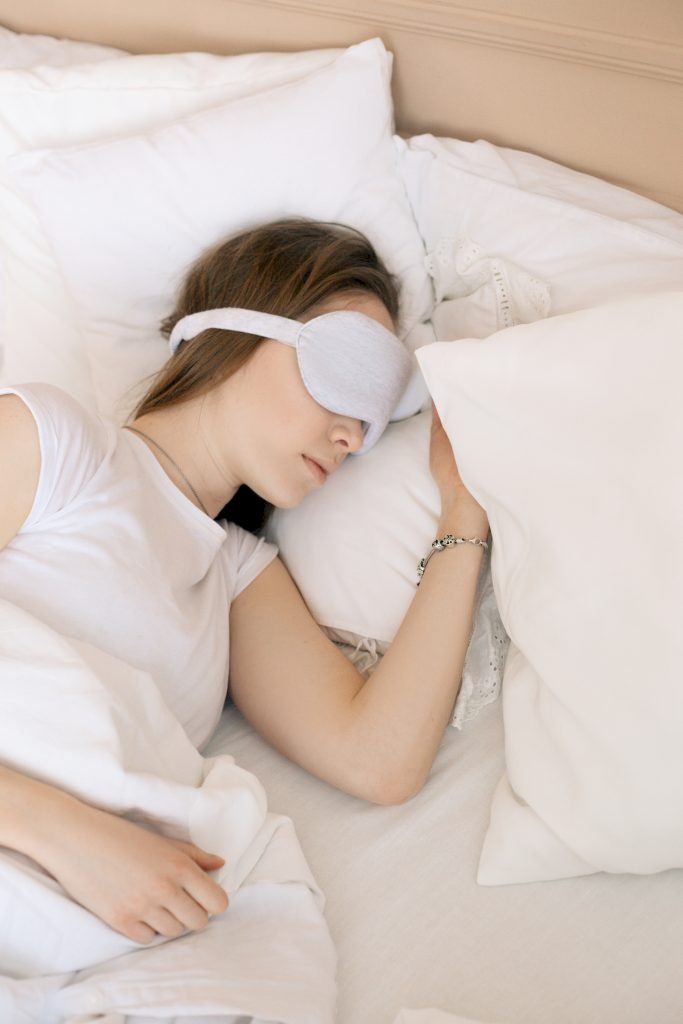
5 Ways To Fix Your Sleep Schedule
When was the last time you enjoyed a good night’s sleep? If your thoughts take you back to the pre-pandemic days, chances are you’re suffering from disrupted sleep patterns, which need to be fixed ASAP.
Our body’s internal clock (circadian rhythm) determines our wakefulness, rest, and sleeping periods. However, drastic changes in our lifestyle, like pulling all-nighters, can affect this natural clock, resulting in anxiety, stress, fitful sleep, and insomnia.
Regardless, the good news is that we can retrain our mind and body to fix our sleep cycle with practice, persistence, and patience. Keep reading to explore five ways to reset your sleep schedule, so you can wake up feeling fresh and well-rested.
Monitor Your Exposure To The Light

Photo By Ketutu Subiyanto On Pexels
One common mistake people make is trying to sleep with the lights turned on. Sometimes, even with all the lights switched off, we forget to turn off our television or keep using our laptops and mobile phones in bed.
Consequently, this can lead to little or no melatonin production, also known as the sleep hormone. So if you want to enjoy a great night’s sleep, avoid using electronic devices and turn out all the lights, so your melatonin levels are balanced.
Relax Yourself

Photo By Ivan Samkov On Pexels
The best way to drift into sleep is by relaxing yourself. On the contrary, if you compel yourself to fall asleep, it will have the opposite effect, leading to increased cortisol levels (stress hormone).
Try engaging yourself in calming bedtime rituals, which will help you unwind. For example, you can listen to a guided meditation, pray or do yoga, read a book or write in your journal, or sip your favorite decaffeinated bedtime drink.
Get Comfortable

Photo By Anna Nekrashevich On Pexels
Before dozing off, try to make sure everything around you is in prime condition. If your mattress or pillow is uncomfortable, you will keep tossing and turning in bed all night, which will negatively affect your sleep.
As a result, you can also suffer from headaches, backache, and body pains because of your uncomfortable sleeping conditions. Moreover, monitoring your room’s temperature is also imperative for a good night’s sleep.
Avoid Naps

Photo By Marcus Aurelius On Pexels
Many people tend to sleep during the day and complain about feeling sleepless at night. However, if you’ve already rested before bedtime, there’s every likelihood that you will not feel drowsy at night, which will drag your sleep time.
Thus, it is best to skip your naps during the day, so you are tired when the night falls. Another way to rest before bedtime is by taking naps in the early afternoon rather than in the evening.
Regular Exercise

Photo By Tim Samuel On Pexels
People who maintain a regular fitness routine also enjoy a good night’s sleep. The reason for this is that exercising helps our body adjust its circadian rhythm, which automatically normalizes our wakefulness and sleep cycles.
Try to engage in some form of physical activity during the day for at least 20 minutes or more. Moreover, carrying forward your workout routine at least five times a week will positively impact your overall health, including your sleep schedule.